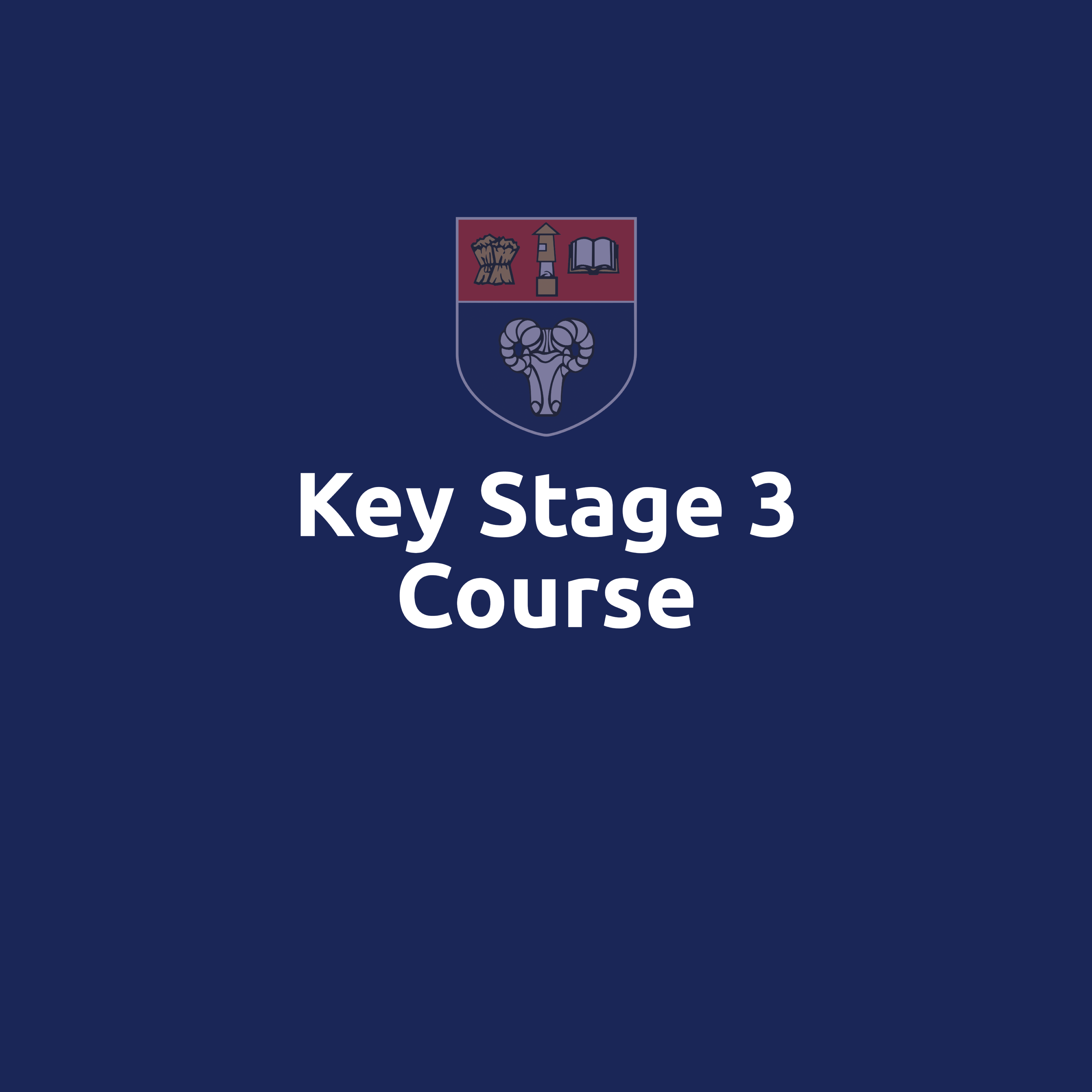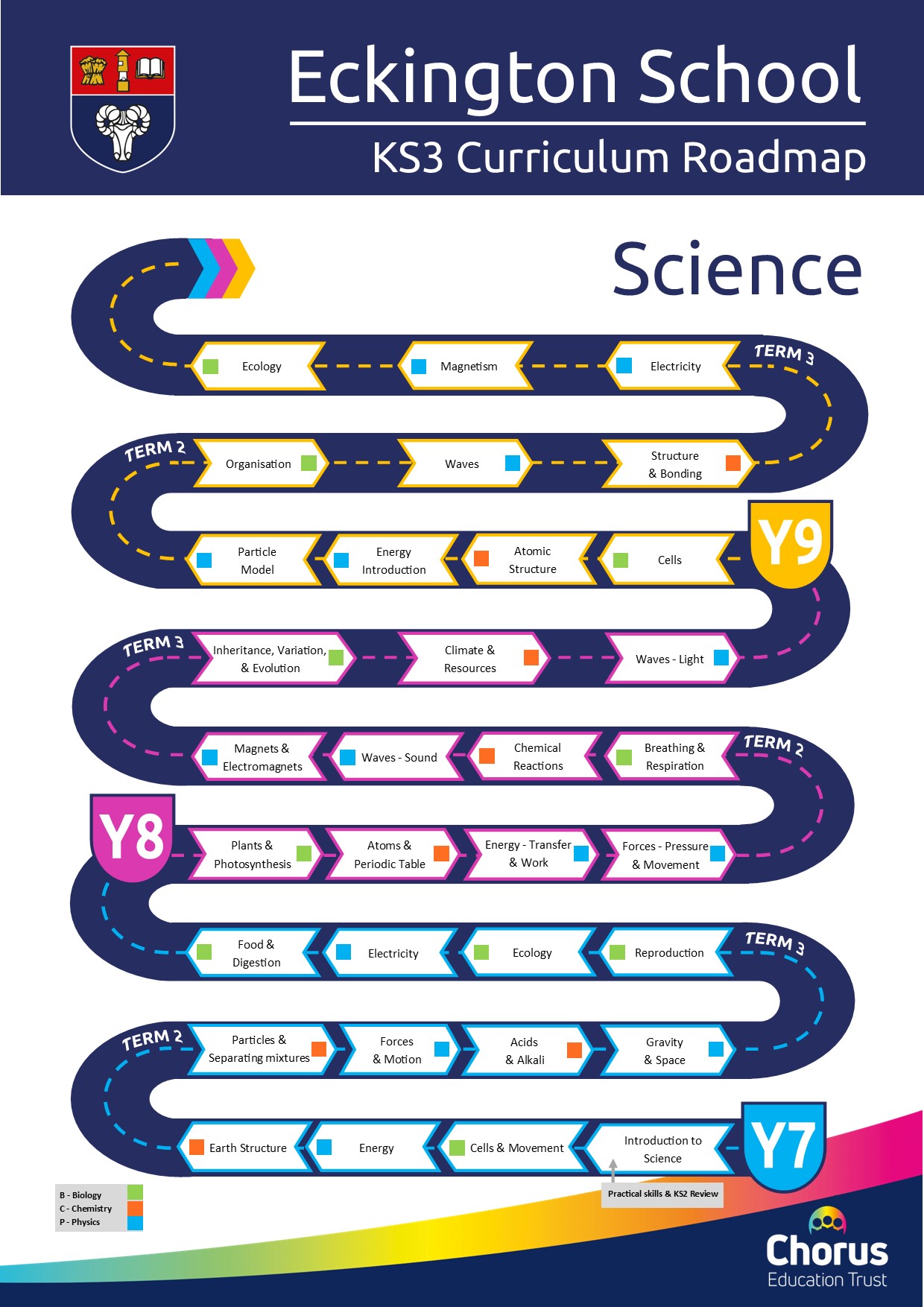Courses
We offer a broad and balanced curriculum, for:
Click the appropriate button below to find the details for each subject offered in each key stage.
Further details of our curriculum are available on the curriculum page.

Overview
Science
Introduction
The key stage 3 science curriculum at Eckington covers the national curriculum for science. It is organised into key scientific concepts and topics to ensure a well-rounded understanding of the three main branches of science. Students explore fundamental principles in biology, such as cells, genetics, and ecosystems. In chemistry, they delve into the properties and behaviour of materials, chemical reactions, and the periodic table. Physics topics include forces, energy, electricity, and magnetism.
Practical skills are emphasised at key stage 3, with a focus on developing students' ability to design experiments, collect and analyse data, and draw conclusions. This hands-on approach not only reinforces theoretical understanding but also cultivates critical thinking and scientific enquiry skills. Students are encouraged to explore and investigate scientific phenomena, fostering a curiosity-driven approach to learning.
Assessment at key stage 3 typically involves both formative and summative methods. Formative assessment, including classwork, homework, and practical activities, helps teachers gauge students' progress and tailor subsequent teaching accordingly. Summative assessments, often in the form of end of topic tests, evaluate students' overall understanding of the key scientific concepts covered during the key stage.
In summary, the key stage 3 science curriculum at Eckington provides a solid foundation for all students, equipping them with the essential knowledge and skills needed for further scientific exploration at GCSE level. It emphasises practical engagement, scientific literacy, and an appreciation for the broader impact of science on society and potential career paths.
Course leader
H Streets
Skills and requirements
Key concepts
These concepts build cumulatively throughout the curriculum and will enable all students to become successful in science:
- Development of scientific thinking.
- Experimental skills.
- Analysis and evaluation.
- History of science.
- Science in action.
Progress expectations
Click these links to download the prior attainment related expectations by year group:




